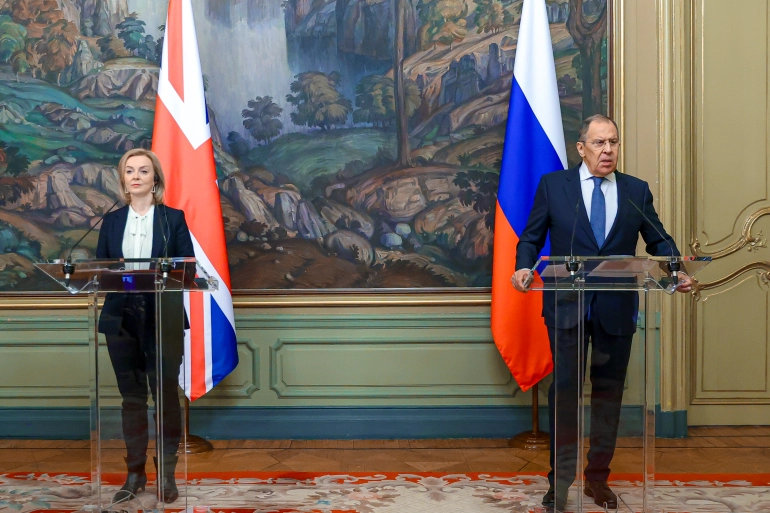•Moscow expects response to question from each of 37 states, says Foreign Ministry spokeswoman
By Elena Teslova
Russia does not accept “a collective response” from NATO and the EU on the question about equal and indivisible security in Europe, Russia’s Foreign Ministry spokeswoman Maria Zakharova said Friday.
Zakharova said in a written comment on the Foreign Ministry’s website that Moscow sent a note to the foreign ministries of 37 countries and specifically stressed it expects a detailed response from each.
The note, signed by NATO Secretary-General Jens Stoltenberg and EU top diplomat Josep Borrel, does not have an answer to the question raised by Russia, instead they invite to engage in a dialogue on strengthening security, Zakharova said.
“We remind that the message by S.V. (Sergey Viktorovich) Lavrov was addressed to the foreign ministries of 37 states of Europe and North America. And in it, it was particularly stressed that we expect a detailed response in a national quality.
“Instead of that, J. Stoltenberg and J. Borrel are writing to us, to whom we did not address. Such a step cannot be characterized but as a demonstration of diplomatic impoliteness and disrespect to our request,” said Zakharova.
She noted that documents of the Organization for Cooperation and Security in Europe (OSCE), cementing the principle of indivisibility of security, are signed by heads of states in a national quality and in that quality the states pledged not to strengthen their security at cost of the security of others.
“Because of that, we cannot accept ‘a collective response,’ resembling ‘collective guilt.’ We are waiting for an exhaustive reaction to the question, raised by us, from each addressee. Evading a response means that the West does not want to adhere to commitments, undertaken in the OSCE and Russia – NATO, and are trying to provide their security at our expense,” she said.
The 1999 OSCE Security Charter and the 2010 Astana Declaration, adopted at the highest level, clearly and unambiguously stipulate that “no state. a group of states or an organization cannot be endowed with predominant responsibility for maintaining peace and stability in the OSCE region,” Zakharova noted.
“And NATO and the EU insist on their dominant role in ensuring security in the Euro-Atlantic. This approach is categorically unacceptable for us as well as the fact that we are invited to a new round of discussions on the issue of indivisibility of European security.
“The principle of indivisibility of the European security cemented in the fundamental documents of the OSCE and Russia – NATO, there is nothing to discussed here, it is simply necessary to implement it,” she stressed.
Credit | AA

